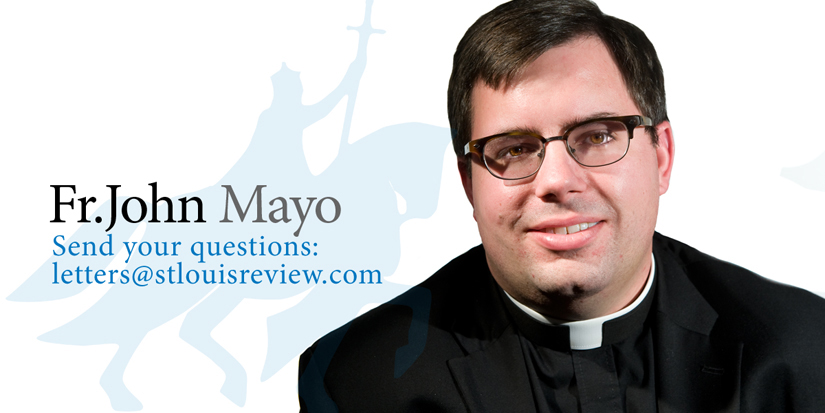Dear Father | At the crucifixion, Jesus unites with those who feel God is absent from their lives

Q: What did Jesus really mean when from the cross He said, ‘My God, my God, why have you forsaken me?’
This cry by Christ from the cross comes to us in the Gospels of St. Matthew and St. Mark. The words are a combination of Hebrew and Aramaic, which the Gospel writer then translates into Greek. This formulation is kept in major Bible translations, which first print the Hebrew and Aramaic words, then their meaning in the vernacular in which the Bible is printed.
Pope Benedict XVI in “Jesus of Nazareth: Holy Week” takes up the question prompted by these words that Christians have meditated on for centuries: How could the Son of God feel abandoned by His Father?
The issue of understanding these words of Our Lord is not solely ours, he points out. The people who first heard these words were confused, thinking Jesus was calling on Elijah the prophet to come to His aid. Benedict believes it is only upon reflection after the fact that the Christian community came to realize that the people on Good Friday misunderstood Jesus’ words. He was not calling on Elijah to help Him, but instead praying the first words of Psalm 22.
Jesus here is not crying out that He has been abandoned by the Father. Instead, He is joining Himself with all those who feel God is absent from their lives. He takes the darkness that many feel through God concealing Himself to them at times and offers it to the Father. In doing so, He transforms the darkness they experience.
Our Lord begins this transformation by entering into the darkness Himself. In the psalm, it virtually foretells the sufferings of Jesus from the mockery, pain, thirst, even the casting of lots for his garments. When Jesus utters the beginning of this Psalm, He needs to say no more, for he is living what the psalm prophesied would happen to the Messiah. Later in the psalm, the one suffering for God would proclaim to the assembly, “For God has not spurned or disdained the misery of this poor wretch, Did not turn away from me, but heard me when I cried out” (Psalm 22: 25). God does not turn away from those who suffer or do not see Him, but instead unites Himself to them in the midst of their suffering through the passion of His Son.
The Lord does not just unite Himself to those who are suffering, but also fulfills His vow that the poor would have their fill (cf. Psalm 22:25-6). The poor here are those who are poor in spirit, those who realize their deep need for God and yearn for Him to come to them. Jesus’ promises to them on the cross that they will eat their fill with the gift of salvation brought about through His cross and fulfilled by His resurrection.
As we pray these words, may they help us remember that in our sorrows Christ is present and may we expand our heart to realize ever more deeply our need for Him and His gift of salvation to us.
Father Mayo is associate pastor of St. Elizabeth Ann Seton Parish in St. Charles.
Q: What did Jesus really mean when from the cross He said, ‘My God, my God, why have you forsaken me?’ This cry by Christ from the cross comes to … Dear Father | At the crucifixion, Jesus unites with those who feel God is absent from their lives
Subscribe to Read All St. Louis Review Stories
All readers receive 5 stories to read free per month. After that, readers will need to be logged in.
If you are currently receive the St. Louis Review at your home or office, please send your name and address (and subscriber id if you know it) to subscriptions@stlouisreview.com to get your login information.
If you are not currently a subscriber to the St. Louis Review, please contact subscriptions@stlouisreview.com for information on how to subscribe.



